Mirrors, with their enigmatic reflections And histories, have intrigued humanity for centuries. Their role in Our homes, especially In bedrooms, however, Is a subject Of both curiosity and concern. To comprehend the reservations some individuals have about placing mirrors In bedroom, One must consider the historical and psychological implications tied to them.
1. The History Of Mirrors In Living Spaces
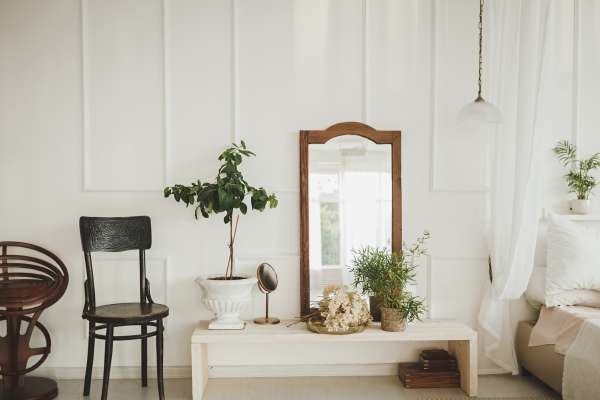
In ancient times, the luxury of catching one’s reflection wasn’t through clear, glass mirrors but rather In pools of still water Or polished metal surfaces. With time, these reflections became symbols Of vanity, introspection, And sometimes even divination. As they evolved, their placement began To hold more profound significance than mere aesthetic appeal.
2. Ancient Beliefs And Mirrors

The mystique of mirror Is rooted In age-old beliefs. Many ancient cultures regarded mirrors as portals to another dimension or as tools that had the power to capture one’s soul. Such beliefs, although superstitious, can still influence the discomfort some people feel with a mirror’s presence In intimate spaces like the bedroom.
3. The Rise Of Mirrors In Modern Homes
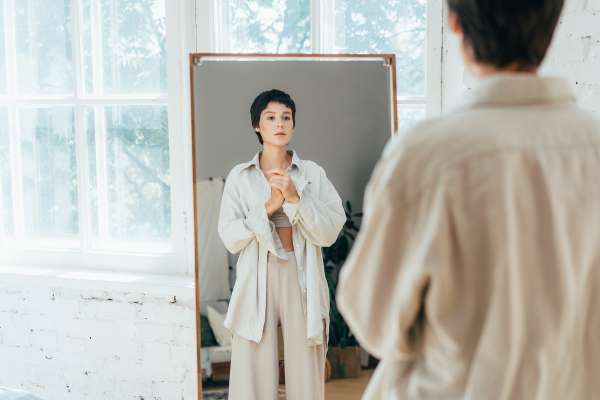
As technological advancements made It possible to produce clearer, larger mirrors, their roles In households became more pronounced. From serving The elite to becoming A common household item, their ubiquity In modern homes also brought forth debates about their appropriate placement, especially concerning the bedroom’s sanctity.
4. Psychological Impacts
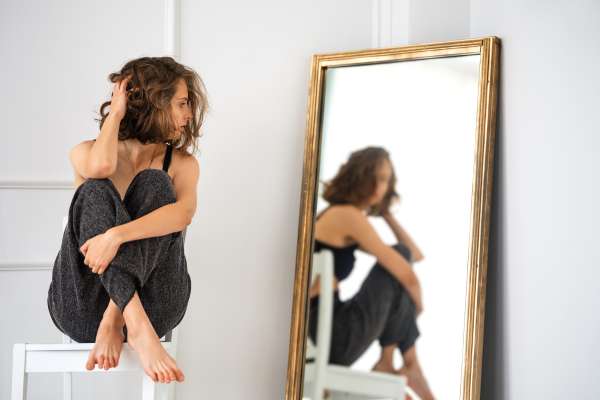
Beyond the myths and legends, mirrors have a tangible psychological effect. Seeing one’s reflection constantly can trigger introspection, sometimes leading to an overemphasis on physical appearance or even exacerbating latent self-esteem issues. In a space meant for rest and rejuvenation, such constant self-awareness might not always be welcome.
5. Disturbed Sleep Patterns
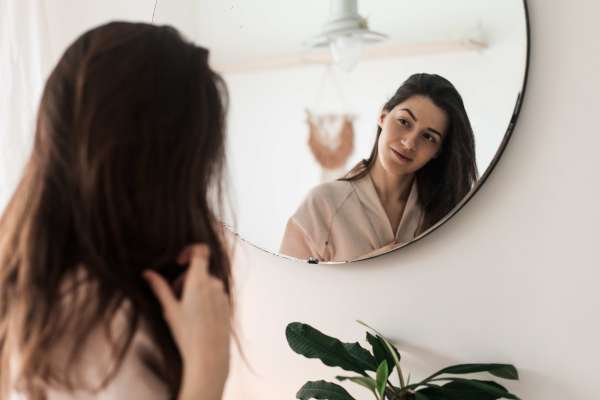
The presence of a mirror can also play tricks On the mind, especially In dim lighting. The reflections of shadows, ambient lights, or even the mere silhouette of the sleeper can be unsettling for some. This can potentially disturb sleep or give a feeling of unease during nocturnal awakenings.
6. Enhanced Self-Consciousness
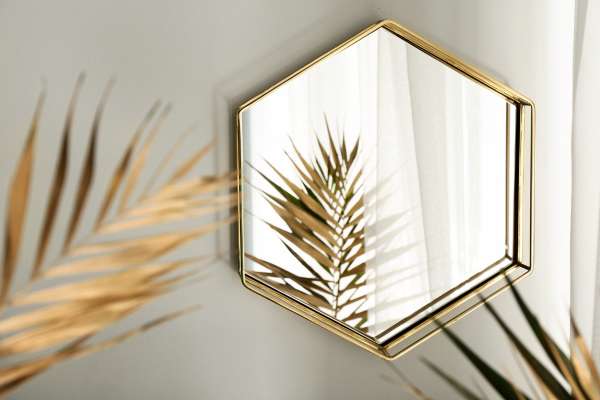
While mirrors serve a functional purpose, their constant presence In intimate spaces like bedroom Can foster a heightened sense of self-awareness. On waking up or preparing for bed, an immediate confrontation with one’s reflection might amplify any existing insecurities or spawn new ones. Over time, this can lead to A heightened state of self-consciousness, potentially affecting mental well-being.
7. Feng Shui & Mirrors

Feng Shui, the ancient Chinese practice Of harmonizing individuals with their surrounding environment, holds specific guidelines about mirror placement In bedrooms. A common Feng Shui belief suggests that mirrors facing The bed Can drain personal energy and might even invite unwanted third-party interference into the couple’s relationship. The reflective nature of the mirror Is thought to bounce Off positive energy, disrupting the room’s harmonious balance.
8. The Principle Of Reflected Energy
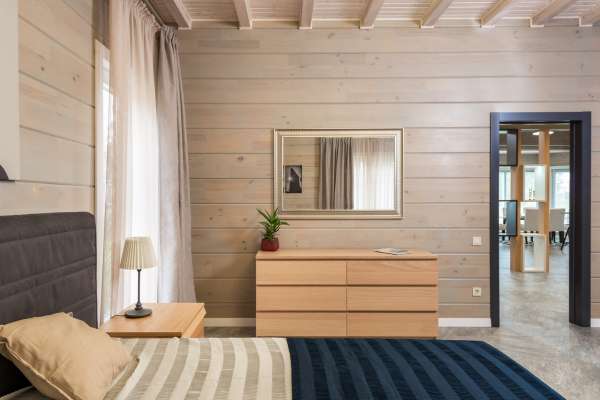
Mirrors operate on the principle Of reflecting light and energy. In spaces meant for rest and introspection, this constant reflection might be counterproductive. The energy rebound might cause restlessness or An overwhelming sense of alertness, negating the calming ambiance usually desired in bedrooms.
9. Disruption Of The Calm Energy
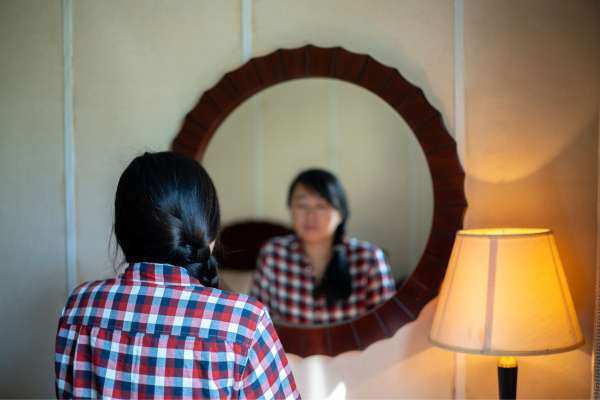
Bedrooms are often regarded as sanctuaries, places of retreat where one seeks calm and tranquility after a day’s hustle. Mirror, with their reflective natures, can inadvertently amplify the room’s energies. For individuals sensitive to their surroundings, this might lead to feelings of restlessness, making it difficult to achieve the desired state of relaxation in their own space.
10. Practical Concerns
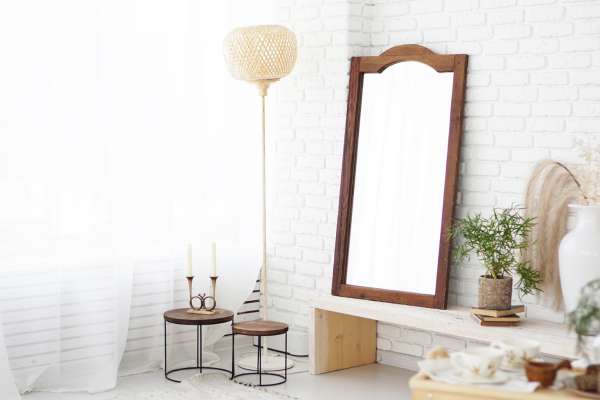
While mirrors In the bedroom can provide functionality, like assisting in dressing or adding depth to a room, they can also present issues. For instance, If positioned opposite a television Or window, they Can reflect glare, which Can be particularly disruptive. Dust and smudges also tend to be more visible On mirrors, necessitating frequent cleaning.
11. Amplification Of Light

A mirror can dramatically increase the amount of light In A room. Whether it’s the morning sunlight or The glow from A streetlamp, mirrors can magnify this light, potentially disturbing those who prefer A darker room for sleep. This could be especially problematic For individuals who suffer from conditions like insomnia.
12. Safety Concerns
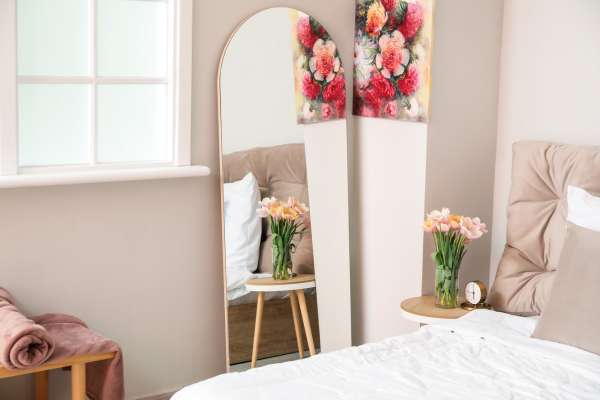
Large or poorly secured mirrors pose a risk. In the event of an accident, earthquake, or even minor mishaps, mirrors can shatter, causing potential injury. Especially in bedrooms, where one might be barefoot or in relaxed attire, this presents a heightened hazard.
13. The Pros Of Mirrors In Bedroom
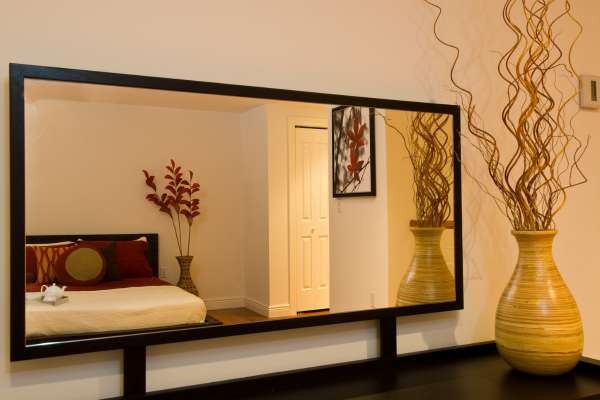
Despite some drawbacks, mirror also have undeniable advantages In bedroom settings. They Can make A room appear larger, brighter, And more open. Moreover, they serve A practical purpose For dressing, And aesthetically, they Can serve As a statement piece, adding elegance And style To bedroom decor.
Can Covering The Mirror At Night Be A Solution?
Absolutely. For those who find the reflective nature of mirrors disturbing at night, covering them can be a practical solution. A simple drape Or cloth can prevent unwanted light reflections, minimize distractions, and create a more subdued environment conducive to sleep. Additionally, for those who believe In Feng Shui or have cultural concerns about mirrors facing the bed, A cover offers a way to mitigate potential negative energy.
What Is The Best Place To Put A Mirror In The Bedroom?
Positioning is crucial when it comes to mirrors in the bedroom. Here are some guidelines:
Avoid Directly Opposite the Bed: From a Feng Shui perspective, it’s believed that mirrors facing the bed can disrupt energy and sleep. Even from a practical standpoint, waking up to one’s reflection can be startling for some.
Utilize them for Amplification: If you have a smaller room, placing a mirror on a side wall can give the illusion of space, making the bedroom appear larger.
Consider Light Sources: Position the mirror where it doesn’t reflect unwanted light into your eyes, especially if you’re sensitive to light when waking up.
Dressing Area: If you have a specific section of your bedroom designated for dressing, that’s an ideal spot for a full-length mirror.
The Final Thoughts
Mirrors are more than just decorative pieces; they play a role In shaping the ambiance and energy of A room. While they undeniably add aesthetic And functional value To bedrooms, It’s crucial to consider their placement And potential implications. Covering them at night Or positioning them thoughtfully can be The key to harnessing their benefits while mitigating potential drawbacks. Like any design choice, it’s All about balance And ensuring that the space aligns with One’s comfort and well-being.
